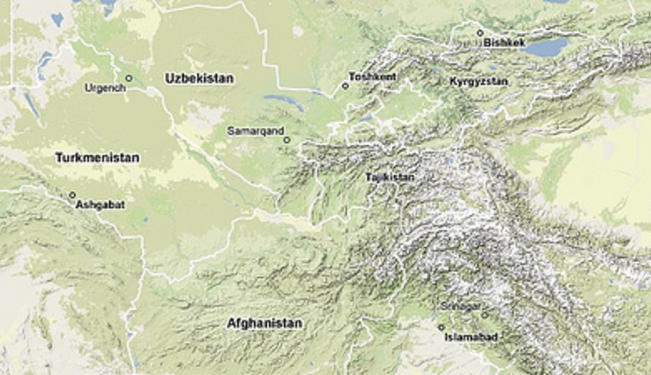Two decades after the fall of the Soviet Union, Central Asia still faces the challenge of finding the right path to a sustainable democratic future.
The Russian Revolution of 1917 led to the formation of the 15 republics of the Soviet Union amongst which the countries Kazakhstan, Tajikistan, Turkmenistan, Uzbekistan and Kyrgyzstan are today found. These five countries gained independence by detaching themselves from the Soviet Union’s control after its collapse in 1991 and now constitute the main Central Asian region. Euphoria swept the region and the affected population, along with the Western world, hoped for political change that would bring a democratic future. However, the elation did not last long and disillusionment set in rather quickly. The task of reorganizing the political systems in combination with restructuring the countries’ economies was huge and even though the five countries were able to obtain autonomy, tangible traces of the Soviet legacy still hamper the road to a genuine and functional democracy.
Often mentioned in the same breath with countries such as North Korea or Chad, Turkmenistan and Uzbekistan are considered to be among the most oppressive countries in the world. It seems like the Central Asian region has never been able to fully free itself from the authoritarian structures that it inherited from its Soviet past, which now more than ever, are complicating the enforcement of political reforms. Some people fear that rather than being a step forward, civic activism demanding reforms could lead to instability in the region and worsen the situation. Turmoil in the recent past however indicates that this attitude is about to change and that society is ready to publicly express its discontent.
The leadership recognized that a free press and Internet are forms of media powerful enough to threaten the government’s position. Media is strictly controlled and the freedom of press is being greatly constricted. In addition, corruption is still widespread and while the countries’ transition away from a planned economy is still in process, poverty is prevalent, especially across the rural areas of the highly agricultural region.
When speaking of the political culture in Central Asia, the question of whether or to what extent Islam has an impact on the region’s political situation, is much discussed. Especially post 9/11, external influences, most prominently the US, started to emerge on the scene with the mission of combating radical Islamic terrorist groups and unfolding the War On Terror. But for all the debate, it is necessary to look behind the curtain in order to recognize that though Islamic radicalism affects the conditions, one should not forget the historical heritage and social problems that mark Central Asia’s political development.
Central Asia has gone through radical political changes. While there have been attempts to implement democratic reforms, the development of the democratization process in the post-Soviet space has been slow. Down to the present day, Kyrgyzstan is the only democracy in Central Asia and the region – like in 1991, still faces an uncertain political future.
Quick facts:
Territory: Includes the five republics of the former Soviet Union: Turkmenistan, Kyrgyzstan, Tajikistan, Uzbekistan and Kazakhstan
Area: 1,542,000 square miles, located between the Caspian Sea in the west, China in the east, Afghanistan in the south, and Russia in the north
Population: 55 million
Religion: Islam is the most widely practiced religion
For more than 10 years, Fair Observer has been free, fair and independent. No billionaire owns us, no advertisers control us. We are a reader-supported nonprofit. Unlike many other publications, we keep our content free for readers regardless of where they live or whether they can afford to pay. We have no paywalls and no ads.
In the post-truth era of fake news, echo chambers and filter bubbles, we publish a plurality of perspectives from around the world. Anyone can publish with us, but everyone goes through a rigorous editorial process. So, you get fact-checked, well-reasoned content instead of noise.
We publish 2,500+ voices from 90+ countries. We also conduct education and training programs on subjects ranging from digital media and journalism to writing and critical thinking. This doesn’t come cheap. Servers, editors, trainers and web developers cost money.
Please consider supporting us on a regular basis as a recurring donor or a sustaining member.
Support Fair Observer
We rely on your support for our independence, diversity and quality.
Will you support FO’s journalism?
We rely on your support for our independence, diversity and quality.











